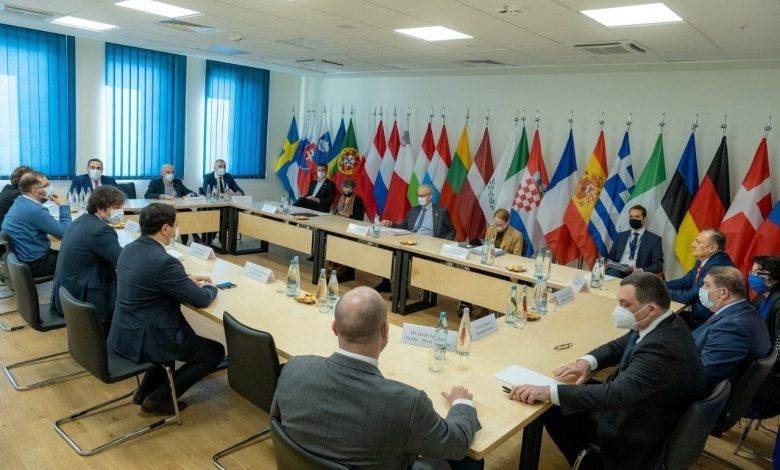საერთო ცხელი ხაზი +995 577 07 05 63


Dear Sirs and Madams,
We have closely followed and observed the political developments of the last few months that you have been part of in Georgia. It is clear for everyone that the crisis is getting deeper and deeper by the day. The failure of the first round of mediation has left many citizens in low spirits. Georgians want to see political parties focused on the furthering of the country’s development, however, all they get is more and more actions aimed at deepening the political polarization. To our greatest regret, political discussions are depleted from the most meaningful and important topics that are of interest and concern to the Georgian public. Georgia is under the international spotlight, which is indicative of its strategic importance. The country’s main partners, the EU, and the United States are sparing no effort to find a solution to overcoming the crisis. At the same time, it is clear that the key to resolving this problem is in the hands of Georgian politicians. We are unfortunately under the impression that the parties involved in the negotiations are not prioritizing looking for the solution out of the crisis. Instead of trying to find a compromise, the parties are instead imposing red lines. This approach suggests that there is no motivation to reach an agreement. The country stands before major social, economic, and foreign policy challenges. Independent and effective institutions are the prerequisite to overcoming these challenges. The ongoing political crisis poses significant risks to the stability and democratic development of the country. Nevertheless, we strongly believe that with every crisis comes opportunity: we should use it to identify and resolve the underlying causes. It is clear to us that the country was brought to this state by the current system of government, which has endowed all previous ruling parties over the last 30 years with uncontrolled and unbalanced powers. A winner takes all rule allows the all-powerful majority to disregard and neglect the voice of the opposition. A party that has suffered defeat in the elections is unable to have an impact on the political processes that would be proportionally reflective of its electoral support. The system doesn’t take into account a large number of voters in the distribution of powers. This is a zero-sum game and it needs to change. Now is the perfect time to start working on this.
We would like to propose our vision of overcoming the current political crisis, which is based on the President of the European Council Charles Michel’s 6-point framework document. We strongly believe that these recommendations will resolve the crisis in the short run and ensure that the political system is healthier and conducive to consensus in the future.
These steps must become a prerequisite for the realization of Georgia’s international aspirations. They must be taken at the spring 2021 session. We believe that division of power, a balanced system of government, and democratic reforms are a universal safeguard and the sole path to the country’s integration with the Euro-Atlantic structures. The process of working on these reforms must be as inclusive as possible and subject to oversight by local and international organizations. We believe that only this kind of a model, which is based on cooperation, will make it possible for us to lay the foundation for a democratic state built upon the principles of human dignity, freedom, and equality. We are prepared to play a significant role in this process, inter alia, by holding consultations with the sides on specific areas of reform.
We, therefore, urge the sides to take advantage of the opportunity which the second round of mediation provides and to reach an agreement according to the above points, so that the country can return to normal life where you will work together from different political positions to attain the common goal of the country’s development.
Signatures: Any organization or individual is welcome to sign the address: https://bit.ly/3d6J06O
The address was prepared by the Georgian Young Lawyers Association (GYLA); Transparency International Georgia (TI Georgia); Human Rights Education and Monitoring Centre (EMC); International Society for Fair Elections and Democracy (ISFED); Liberal Academy Tbilisi.
The website accessibility instruction